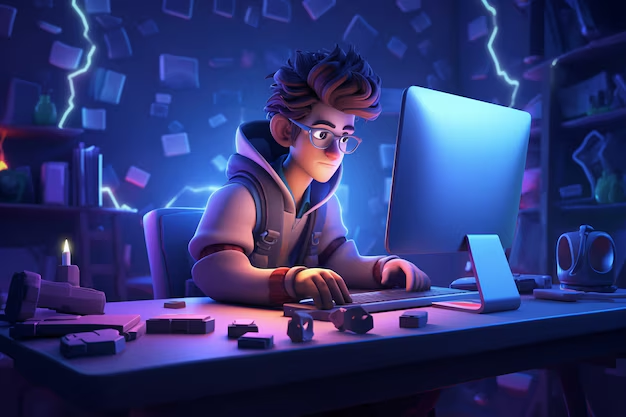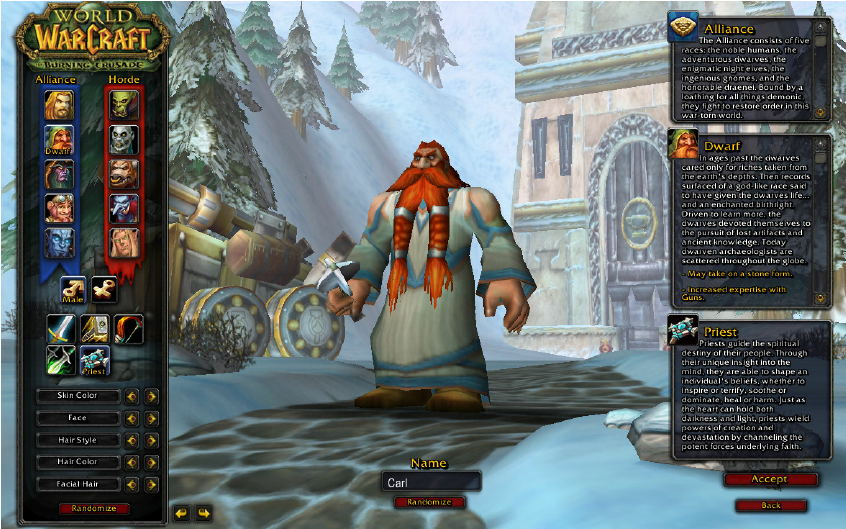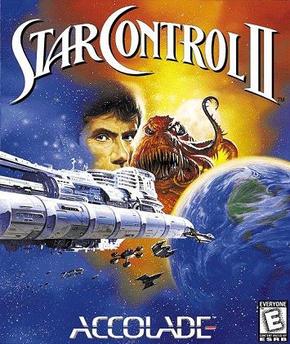In the expansive universe of video games, the launch of a title is often just the beginning of its story. While developers provide the core experience, a dedicated and creative segment of the gaming community takes the reins to extend, enhance, and sometimes completely transform the games they love. This phenomenon is known as game modding. Far from being simple cheats or cosmetic tweaks, game mods represent a vibrant subculture that has profoundly shaped the landscape of PC gaming and the broader gaming industry. They are a testament to player passion, a gateway into game development, and the source of some of gaming’s most iconic genres and titles.
From adding new quests to a sprawling RPG to overhauling the graphics of a decade-old classic, mods breathe new life into games, ensuring their relevance long after the final credits roll. This article delves into the comprehensive world of game mods, exploring the technical foundations that make them possible, their transformative impact on the gaming industry, and the best practices for players looking to dive into this exciting world of user-generated content. We will uncover how a simple hobby can become a career launchpad and how the gaming community continues to push the boundaries of interactive entertainment.
The What and Why of Game Modding: A Spectrum of Creativity
At its core, a “mod” is any modification made by a player or fan to a video game’s original code, assets, or content. The scope of these alterations is vast, ranging from minor adjustments to complete reinventions. Understanding the different categories of mods is key to appreciating their versatility and the creativity of the gaming community. This ecosystem thrives on the desire to personalize and expand upon the foundational experiences provided by game developers.
A Typology of Game Mods
Game mods can be broadly classified based on their function and the extent of their changes:

- Cosmetic Mods: These are the most accessible type of mods, focusing on visual and auditory changes. They can include high-resolution texture packs that make an older game look stunning on modern Gaming Monitors, new character skins, custom weapon models, or sound replacements. A famous example is the mod that turns dragons in The Elder Scrolls V: Skyrim into cartoon characters, showcasing the humorous side of the modding scene.
- Quality of Life (QoL) Mods: These mods aim to improve the user experience without altering the core gameplay. This can involve streamlining a clunky user interface (UI), fixing persistent bugs left by the developers, adding map markers, or automating tedious tasks. They are essential for refining the gameplay loop, especially in complex RPG Games or Strategy Games.
- Content Expansion Mods: These ambitious projects add entirely new content to a game. This could be new quests, storylines, characters, maps, weapons, or playable factions. The Falskaar mod for Skyrim, for instance, adds a new landmass with over 20 hours of new, fully-voiced content, rivaling official DLC in scope and quality. This is a huge draw for players who have exhausted the original game.
- Gameplay Overhauls: These mods fundamentally alter the rules and mechanics of a game. They might rebalance the economy, change combat dynamics, introduce survival elements, or drastically increase the difficulty. Long War for XCOM: Enemy Unknown is a prime example, transforming the tactical gameplay into a much deeper, more challenging, and protracted campaign that became legendary within the community.
- Total Conversions: The pinnacle of modding, these projects use a game’s engine and base assets to create an entirely new game. The original game is merely a foundation. Historically, this category has produced some of the most influential titles in all of Gaming History.
The Motivation Behind Modding
The drive to create and use mods stems from both the player and creator side. For players, it’s about personalization, extending the replay value of a favorite title, and fixing perceived flaws. For modders, the motivations are often deeper. It’s a powerful outlet for creative expression and a practical, hands-on way to learn the fundamentals of Game Development. Many aspiring developers cut their teeth building mods, learning scripting, 3D modeling, and Game Design principles using engines like those behind popular titles, which often share concepts with commercial engines discussed in Unity News and Unreal Engine News.
Gamer at computer with code on screen – EQT agrees £2.2bn takeover of Keywords Studios – Private Equity News
The Technical Underpinnings: How Mods Work
The ability to mod a game is not an accident; it is heavily dependent on the game’s architecture, the engine it’s built on, and the tools provided—or not provided—by the developer. The vibrant modding scenes surrounding games from Bethesda, Valve, and Firaxis are a direct result of their developer-friendly design philosophies, which stand in contrast to the locked-down ecosystems common in Console Gaming.
The Foundation: Mod-Friendly Game Engines and APIs
A game’s “moddability” starts with its engine. Engines designed with modularity in mind, where assets like textures, models, and scripts are stored in easily accessible and replaceable formats, are prime candidates for modding. Bethesda’s Creation Engine, for example, is famous for its open structure. Developers can further encourage modding by releasing official Software Development Kits (SDKs) or modding tools. The Creation Kit for Skyrim and Fallout 4, or the extensive tools for Valve’s Source engine, give modders the same power as the developers to create and manipulate the game world. Furthermore, integration with platforms like the Steam Workshop, a major topic in Steam News, simplifies the distribution and installation process, making mods accessible to a wider audience.
The Mechanics of Modification
Modders employ a variety of techniques to alter a game, with complexity ranging from simple file swaps to intricate reverse engineering:

- Asset Replacement: The most basic form of modding involves replacing a game’s asset files. A modder might use Photoshop to edit a texture file (e.g., a
.ddsfile) to change a character’s armor color or use Blender to create a new 3D model for a sword. This directly impacts what is rendered by a player’s Graphics Card on their Gaming PC. - Scripting: Many games use high-level scripting languages (like Lua or Bethesda’s Papyrus) to control game logic, AI behavior, quests, and events. By editing or adding new scripts, modders can create complex new quests, change how enemies behave in FPS Games, or introduce new gameplay systems.
- Code Injection and Hooking: For games without official modding support or with engine limitations, advanced modders use external tools to “inject” custom code into the game’s executable file as it runs. Script Extenders (like the Skyrim Script Extender, or SKSE) are a prime example. They “hook” into the game’s functions, exposing new capabilities to scripters and bypassing hardcoded limitations.
- Reverse Engineering: In the most extreme cases, dedicated modders will decompile a game’s code to understand its inner workings. This is often necessary for creating mods for older titles in the Retro Gaming scene or for enabling complex features the developers never intended, drawing parallels to the world of Game Emulation.
The Impact of Modding on the Gaming Industry and Community
The influence of game mods extends far beyond individual player experiences; it has fundamentally shaped the business and culture of the Gaming Industry. What often starts as a community-driven hobby has repeatedly evolved into major commercial success and the birth of entirely new genres.
Gamer at computer with code on screen – 3,100+ Website Backend Stock Photos, Pictures & Royalty-Free …
From Hobby Project to AAA Game: Landmark Case Studies
The history of video games is filled with examples of mods that transcended their origins to become global phenomena:
- Counter-Strike: Originally a mod for the 1998 shooter Half-Life, Counter-Strike introduced a team-based, objective-focused gameplay loop that was revolutionary at the time. Its popularity exploded, and Valve eventually hired its creators to develop it into a standalone commercial product. Today, it is a cornerstone of Competitive Gaming, with the latest iteration, Counter-Strike 2, dominating Esports News.
- Defense of the Ancients (DotA): A custom map and mod for Blizzard’s Strategy Game Warcraft III, DotA pioneered the Multiplayer Online Battle Arena (MOBA) genre. Its complex mechanics and team-based gameplay created a massive following, directly leading to the development of two of the biggest games in the world: League of Legends and Valve’s own sequel, Dota 2. The entire MOBA Games genre owes its existence to this mod.
- The Battle Royale Genre: The modern Battle Royale craze can be traced back to mods for the military simulator ARMA 2. Brendan Greene (“PlayerUnknown”) created a mod called DayZ: Battle Royale, which refined the last-man-standing concept. This eventually led him to develop the standalone game PlayerUnknown’s Battlegrounds (PUBG), which in turn inspired titles like Fortnite and Apex Legends, forever changing the landscape of online gaming as reported in Fortnite News and Apex Legends News.
The Symbiotic Relationship: Developers and Modders
Forward-thinking developers have recognized the immense value of a healthy modding community. By supporting modders, companies gain a continuous stream of free content that keeps players engaged, extending the commercial life of their games by years. It also serves as an invaluable source of feedback and a recruiting ground for new talent. Many professional game developers started their careers as modders. However, this open approach is more common in PC Gaming. In the more curated ecosystems of Xbox News and PlayStation News, modding is far more limited, often restricted to developer-approved content like Bethesda’s Creation Club to prevent cheating in online games like Call of Duty or Valorant and to maintain system stability.
Getting Started with Modding: A Guide for Players and Aspiring Devs
For players, diving into the world of mods can be a transformative experience, but it comes with its own set of challenges. Following best practices is crucial to ensure a stable and enjoyable experience, especially when dealing with complex load orders and potential conflicts that can tax even high-end Gaming Hardware.
Best Practices for Installing and Using Mods
- Read Everything: Before downloading, carefully read the mod’s description, installation instructions, requirements, and compatibility notes. This is the single most important step.
- Use a Mod Manager: For games with large modding communities (like Skyrim, Fallout, or Minecraft), using a dedicated mod manager like Vortex or Mod Organizer 2 is essential. These tools automate installation, help manage load order, and allow you to enable or disable mods without manually altering game files.
- Check for Conflicts: Many mods alter the same game files or records, leading to conflicts. Mod managers can help identify these issues, and mod authors often provide “compatibility patches” to make their mods work together.
- Backup Your Saves: Before installing a new set of mods, always back up your save files. A poorly made or uninstalled script-heavy mod can corrupt a save file, rendering hours of progress useless.
- Install Incrementally: Don’t install 200 mods at once. Add a few at a time and test the game to ensure it’s stable. This makes it much easier to troubleshoot if a problem arises.
Common Pitfalls and Considerations
- Performance Impact: Be mindful of your system’s limitations. High-resolution texture packs and script-heavy mods can significantly decrease your frame rate, even on powerful Gaming Laptops and PCs.
- Game Updates: Official game patches can often break mods, especially those that rely on script extenders or code injection. It’s common for mod users to delay updating a game until the essential mods have been updated by their authors.
- Security Risks: Only download mods from reputable sources like Nexus Mods, the Steam Workshop, or dedicated community sites. Downloading from unknown sources carries a risk of malware.
Conclusion: The Enduring Power of Player Creativity
Game mods are a powerful and enduring part of the Gaming Culture, representing a unique collaboration between developers and their most passionate fans. They are far more than simple enhancements; they are a source of endless creativity, a training ground for the next generation of developers, and the force behind entire genres that have reshaped the Gaming Industry. By extending the life of beloved titles, fostering tight-knit communities, and proving that the best ideas can come from anywhere, modding ensures that the world of Video Games remains a dynamic and constantly evolving landscape. For players, mods offer a way to make a game truly their own, while for the industry, they serve as a constant reminder of the incredible power of a creative and engaged community.






